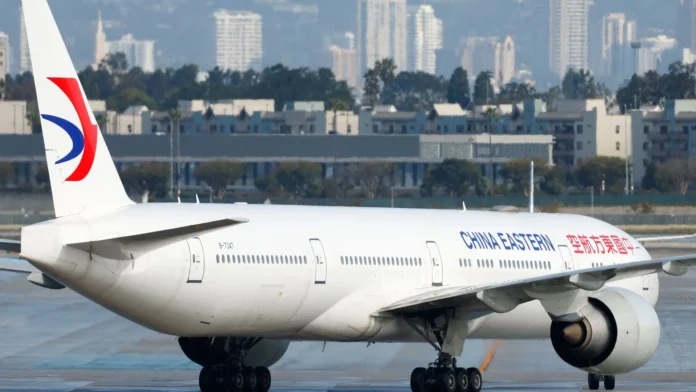The ongoing U.S.-China trade war has taken a sharp turn. China has reportedly stopped accepting new Boeing aircraft deliveries. This decision highlights rising tensions between the two global economic powers. The move directly responds to new U.S. tariff actions.
According to Bloomberg, Chinese authorities have also instructed airlines to stop purchasing U.S.-made aviation parts. This decision places extra pressure on the U.S. aviation sector. Moreover, it signals China’s growing resistance to Washington’s aggressive trade policies.
President Donald Trump recently enforced 145% tariffs on select Chinese imports. In retaliation, China raised tariffs on U.S. goods from 84% to 125%. These new tariffs took effect on Saturday. The economic clash is now hitting major American firms like Boeing.
Despite the freeze, up to 10 Boeing 737 MAX jets are already prepared for Chinese carriers. Some of these jets may have completed payment and paperwork before the new tariffs. These few aircraft may still enter China, but future deliveries remain uncertain.
So far in 2025, Boeing has delivered 20 jets to Chinese airlines, according to Cirium Fleet Analyzer data. However, with this new suspension in place, U.S. aviation exports could suffer a sharp decline. Boeing’s operations in China, a key market, now face increased challenges.
The U.S. aviation industry depends heavily on international demand. Over the past years, China has become a major growth driver. According to Airbus, China’s aviation market will surpass North America and Europe by 2043. This forecast adds urgency for U.S. aviation leaders.
Airbus also expects China’s aviation services to grow from $23 billion in 2024 to $61 billion by 2043. Maintenance services alone may reach $51 billion. This proves how vital the U.S. aviation industry is in the global economy.
To stay competitive, the U.S. aviation industry must navigate rising trade barriers and political shifts. As China boosts its own aircraft production, American firms must adapt fast. Expanding into new markets could be key for the U.S. aviation industry to thrive.
The trade war continues to evolve. Strategic planning and diplomacy may decide which side wins this high-stakes battle.
For more business news updates, visit DC Brief.


